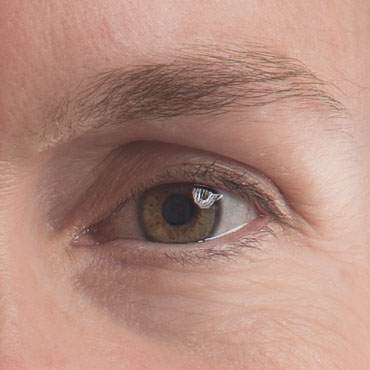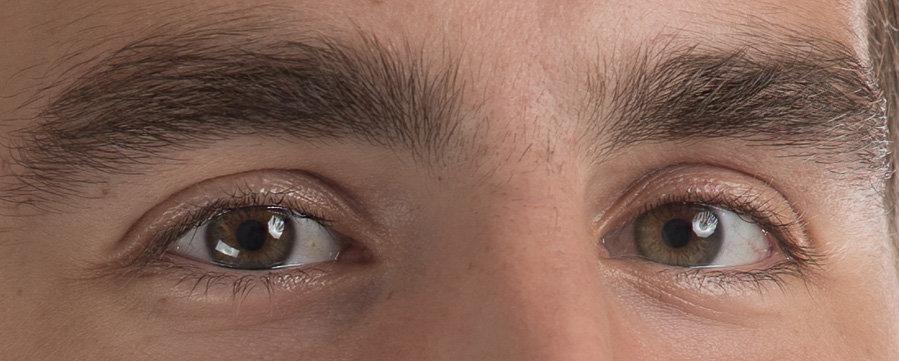If you are experiencing eye flashes—streaks or lightening-like flashes of light in your field of vision—it may be a sign of a serious medical eye condition. Only your eye doctor can diagnose the cause of your flashes. In this article we will discuss the causes of eye flashes and what can be done about such visual disturbances.

Eye flashers are associated with the vitreous humor inside your eye. Vitreous humor is a gel-like substance that fills the majority of your eyeball. This gel allows light to enter the eye via the lens, and it is connected to the retina. If vitreous gel bumps or pulls on the retina, you may see flashes of light in the corner of your eye.
What Exactly Are Eye Flashes?
Occasional Eye Floaters??? By Guest 2 posts, last post over a year ago. Angelica Giron, MD answered this Floaters And Eye Flashes. New Reply Follow New Topic. Guest over a year ago. When I'm walking around, I see these floaters that fly around my vision, it disappears after a while, but then it comes back again. Sometimes you may see an unexpected flashing light in one or both eyes, without an accompanying external source such as a bright light. If you do experience this, you should know that flashes (as well as floaters, another common symptom) are actually fairly common. What are flashes? When we are young, the gel inside your eye (the vitreous) is firmly attached to the back of your eye. As we get older, the vitreous gel naturally becomes more liquid and collapses away from the retina. This is called posterior vitreous detachment (PVD). So, the flashes of light in front of your eyes is formally called eye floaters, which is quite a common eye disease. So, generally speaking, it would be not uncommon for a patient to have eye floaters after cataract surgery. So, at this point, you have to be careful of your eyes and head to the hospital for further treatment and examine.

The word flashes can be defined in many ways, and our visual experiences are subjective by nature, but for the purposes of this article we are talking about streaks or flickers of light appearing usually at the edge of your field of vision. In some cases it may be hard to tell exactly where in your visual field these eye flashes are occurring, or even in which eye. They may be fleeting, or they may last as long as ten to twenty minutes.
What Is Causing My Eye Flashes?
Eye flashes can be caused by a variety of conditions, but the most common causes of eye flashes are:
- Posterior Vitreal Detachment and Vitreal Traction (The vitreous gel pulling on the retina)
- Retinal detachment
- Retinal hole
- Retinal tear
- A neurological disorder or a medical condition affecting the brain
- Ocular migraine
Posterior Vitreal Detachment
The vitreous is the gel-like substance that fills the eye. As we get older, this substance begins to break down and shrink, which may make it lose some of its gel-like consistency. This shrinkage can cause it to tug at the retina, the layer of tissue at the back of the eye that senses light. This tugging produces the appearance in our vision of flashes of light. These eye flashes can be annoying, but they are generally harmless, and in most cases the cause is nothing more than the normal aging process.

Retinal Detachments, Tears, and Holes
In some cases, this tugging on the retina by the vitreous can create a hole in the retina, or even cause a retinal detachment. This is a condition in which the retina peels away from the back of the eye, and eye flashes are among its symptoms. A Retinal detachment is a serious, vision-threatening medical emergency, and if you suspect that this may have happened to you, you should see an eye doctor as soon as possible. Approximately one in ten people who suddenly begin to experience eye flashes are eventually diagnosed with a retinal tear. Other symptoms of a retinal detachment include floaters and decreased vision.
Neurological Disorders
In rare cases, eye flashes can also be caused by problems with the optic nerve or the visual cortex, which is the part of the brain that is responsible for processing visual information. If your eye doctor is unable to determine the cause of your eye flashes, he or she may refer you to a neurologist in order to investigate the possibility that you are suffering from a neurological condition or a problem with your visual cortex.
Ocular Migraines
Eye flashes are sometimes a symptom of an ocular migraine (also known as a retinal migraine), or a scintillating scotoma. People who suffer from one of these conditions may sometimes see shimmering areas of blindness in their field of vision, and these may sometimes be accompanied by flashes of light. Ocular migraines can occur with or without migraine pain.
How Does My Doctor Diagnose My Eye Flashes?
If you are experiencing eye flashes, your eye doctor will want to examine your eyes carefully. He or she will use special eye drops to dilate your pupils in order to examine your retina and vitreous. The doctor may also perform a slit-lamp examination. Other tests that may be conducted include eye pressure tests and ultrasound examination.
What Are My Treatment Options for Eye Flashes?
Treatment for eye flashes will depend on the cause of the problem. It’s best to talk to your doctor to see what your options are. In some cases, you will need to treat the underlying problem to find relief.
What are flashes?
When we are young, the gel inside your eye (the vitreous) is firmly attached to the back of your eye. As we get older, the vitreous gel naturally becomes more liquid and collapses away from the retina. This is called posterior vitreous detachment (PVD). It is very common and more likely to happen as you get older. As the vitreous pulls away from your retina you may see this as a flash of light in one or both eyes, like small sparkles, lightning or fireworks. The flashes tend to be in the extreme corners of your vision and come and go, but don’t obscure any part of your vision. They are different from the shimmering or zig-zag lines that may be part of a migraine. Very occasionally, flashes can be a sign of retinal detachment, which should be treated as soon as possible.
What are floaters?

Floaters are small dark or transparent dots or strands or something that looks like a hair or small pieces of a cobweb that float in the vitreous gel inside your eye. They are formed when the vitreous, which is the jelly inside your eye, separates into watery fluid and wavy collagen fibres. They appear to float in front of your eyes and move when you try to look at them. They are very common and are normally harmless.
Who is affected by flashes and floaters?
Flashes and floaters are more common in older people, people who are short-sighted and in people who have had eye surgery.
What are the symptoms of flashes and floaters?
Flashes appear as small sparkles, lightening or fireworks usually in the extreme corners of your vision. They may come and go. Floaters are more visible in bright light, or if you are looking at a plain bright background such as a cloudless sky or white wall.
Usually, the symptoms are nothing to worry about and you can get used to them. However, if you have any of the following symptoms, you should contact your optometrist as soon as possible:
- a sudden increase in floaters, particularly if you also notice flashing lights
- a new, large, floater
- a change in floaters or flashing lights after you have had a direct blow to your eye
- a shadow or cobweb spreading across the vision of one of your eyes.
Sporadic Eye Flashes
If you can’t contact your optometrist you should get urgent attention, ideally from an eye casualty department at the hospital. If you cannot get to an eye casualty you should go to a hospital A&E department.
How do you treat flashes and floaters?
Are Occasional Eye Flashes Normal
Flashes normally settle down after a few months without treatment. Floaters may be long lasting, but you tend to ignore them after a while. There is usually no treatment required for these conditions.
Watch our video to find out more about flashes and floaters:
Occasional Flash In Eye
Watch our video to find out what it’s like to have floaters: